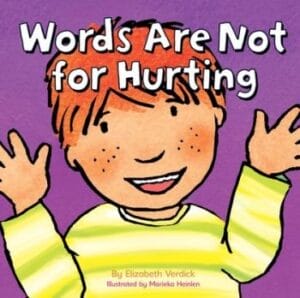The Terrible Twos & Tantrums – Ten Coping Tips

My daughter was one when her terrible twos started!
Yes, you read that right. It use to drive me crazy! It didn’t matter where we were, she’d go into full-blown tantrum mode and my life would be put on hold until she stopped.
It’s the most frustrating and patience-testing times of our lives, and that’s not an exaggeration!
Luckily, that period of my life is over, not to say that there aren’t still tantrums and sulking going on in my house, but at least she is now able to communicate and tell me if there’s something wrong. I decided to write about this because as I type I am receiving message from my niece who is losing her patience with her son. He is 14 months old and having the biggest tantrum ever!
My niece is generally very patient, and even with the sleepless nights and the teething pains, she has been really good. I have been impressed but she is finding this one really difficult. Her last message read, “He’s found his dummy, walked to his room, thrown himself on the rug and fallen asleep!” I could sense the relief in her message. Unfortunately, that’s not the end, (I’m so sorry to say!).
One of my worst moments was when I was out shopping with my then three year old. I was 5 months pregnant with my second child and my daughter decided to have a tantrum. I cannot for the life of me remember what it was about but it made me flip my lid!!
I had a shopping basket I used to take with me so I didn’t have to carry any heavy shopping. I literally, threw the basket across the floor in the shopping centre and told my daughter, very firmly, that I am going home. I then turned around and walked away. I was fuming, I was so fed up. I think she went into shock. She picked up the basket and tried her best to pull it along with her little arms and caught up with me. She apologised and we carried on with our shopping, tantrum free!
When I think back to that day, I do feel quite guilty, but I think she got the message! Learning to deal with frustration is a skill that children gain over time. Tantrums are common during the second year of life, a time when language skills are starting to develop. Because toddlers can’t yet say what they want, feel, or need, a frustrating experience may cause a tantrum.
I must admit, I am not expert when it comes to dealing with the terrible twos but I have picked up some tips that have worked for me and I’d like to share them with you.
- Set Boundaries: Children need to know their boundaries! It’s important to realise that young children behave badly because they are pushing those boundaries and relying on you to let them know when they’ve gone too far. So, you have to have consequences. This is where you use time out, the naughty step or take away one of their privileges. One piece of advice that we all have difficulty sticking to is going through with these ‘punishments’ and being consistent. Eventually, your child will realise that you mean business and the use of those ‘punishments’ will become less frequent.
- Let them think they are the boss: When these our little ones have their tantrums, they reckon they’re the boss of the house and they don’t want you making decisions for them. So you have to make them think they have power and control. It’s not really a bad trait to have as they only want what we all want instinctively. The way you can do this is by offering choices.This doesn’t mean asking them if they want to take a nap or play outside! No! But you could ask what they want for dinner, and offer two choices, or they could choose between two or three different activities. I remember my daughter at that age, she was never happy with the clothes I picked out for her. It was such a pain. So every morning I would give her a choice of two outfits and she was so happy being able to pick and it really made a difference to her behaviour. Once a routine has been established and your child feels like they have some control, the tantrums should start to reduce.
- Give them responsibility: To reinforce the need for power and control, you could give your little one some responsibility. Think about what they are able to do and let them be in charge of that a task – most of the time. I was with my great-nephew yesterday and he loved to put things in the bin! It was the cutest thing ever, I asked him to put some rubbish in the bin, he waddled over and did as I asked with a big smile on his face. He was so proud of himself and we all praised him. Set some tasks and watch them flourish.
- Plan for naps: At this age, naps are so important. As they are unable to tell us what’s wrong, we have to make judgements and assume. Your child is at a stage where their brain wants to say so much but they don’t yet have the language to express themselves. This is extremely frustrating and why they have such outbursts. So if you know when your child naps, plan your activities around those naps. Sleep is crucial.
- Ignore/Redirect: Sometimes, our little ones decide to have an outburst for no apparent reason at all and we are left feeling completely baffled. They are obviously seeking attention but giving in to this behaviour is only teaching them that if they throw a tantrum, they will have your attention and you don’t want that. You could try ignoring the behaviour but that takes some patience, if you do manage it you will find that they have eventually fallen asleep or, found something to occupy themselves with. You could also try to redirect their attention by drawing their attention to some food or activity or something interesting for them to see. If the ‘redirect’ method works instantly, then it has been successful. If you have to keep trying – go back to ignoring. They are hungry for stimulus, so if you can cure the boredom, you are 99% of the way there.[irp]
- Give lots of praise: I cannot emphasise how important it is to praise. They children love being told how wonderful they are! Reinforce the good they do, that way they will do more of what you want in return for the praise, rather than scream and make you feel like your brain is going to burst inside your own head!
- Patience! I have lost this too many times with my kids and then instantly regret it. Yes, I am talking about patience. As difficult as it might seem at times, patience is the key. Whatever you do, don’t give in, stay consistent and stay calm. They can smell the fear!
- It won’t last forever: At times, the terrible twos seem like they will last forever. They don’t. One of the things you can do is gain perspective. It is a normal stage of child development, you did it, I did it… yes, every child goes through it to some degree. Once we get this into our heads, we don’t feel so lonely.
- Reach out: For some of us it is difficult to ask for help, sometimes even harder when it’s family we’re asking. With social media at our finger tips we can reach out to other mums, groups, forums and lots more – reach out and ask for help and advice. Most mums are happy to talk about everything and will share their own tips with you. You will at least feel that you have some sort of support network.
- Discover More: Lastly, read articles and blogs that are a wealth of knowledge. There are plenty of books out there that can help you and there are also plenty of book that you can read with your child that will help and reinforce good, positive behaviour.
From our Encouraging Good Behaviour Range
- Hands Are Not for Hitting
- Feet Are Not for Kicking
- Words Are Not for Hurting
- My Best Friend
Join our mailing list
Sign up to our Emailing List & Get the Latest Information and Offers on Resources
Thank you for joining !
Something went wrong.








